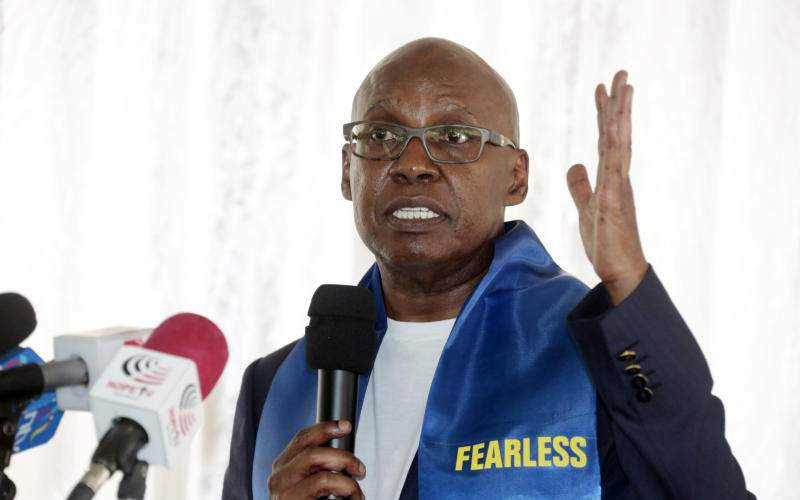×
The Standard e-Paper
Smart Minds Choose Us

Businessman Jimi Wanjigi opines there are enough indicators that the Kenya Kwanza government is likely to fail in meeting its debt obligations.
Speaking during an interview on KTN news, Wanjigi argued it was improper for the government to punish its citizens by imposing additional taxes to evade a debt repayment crunch.